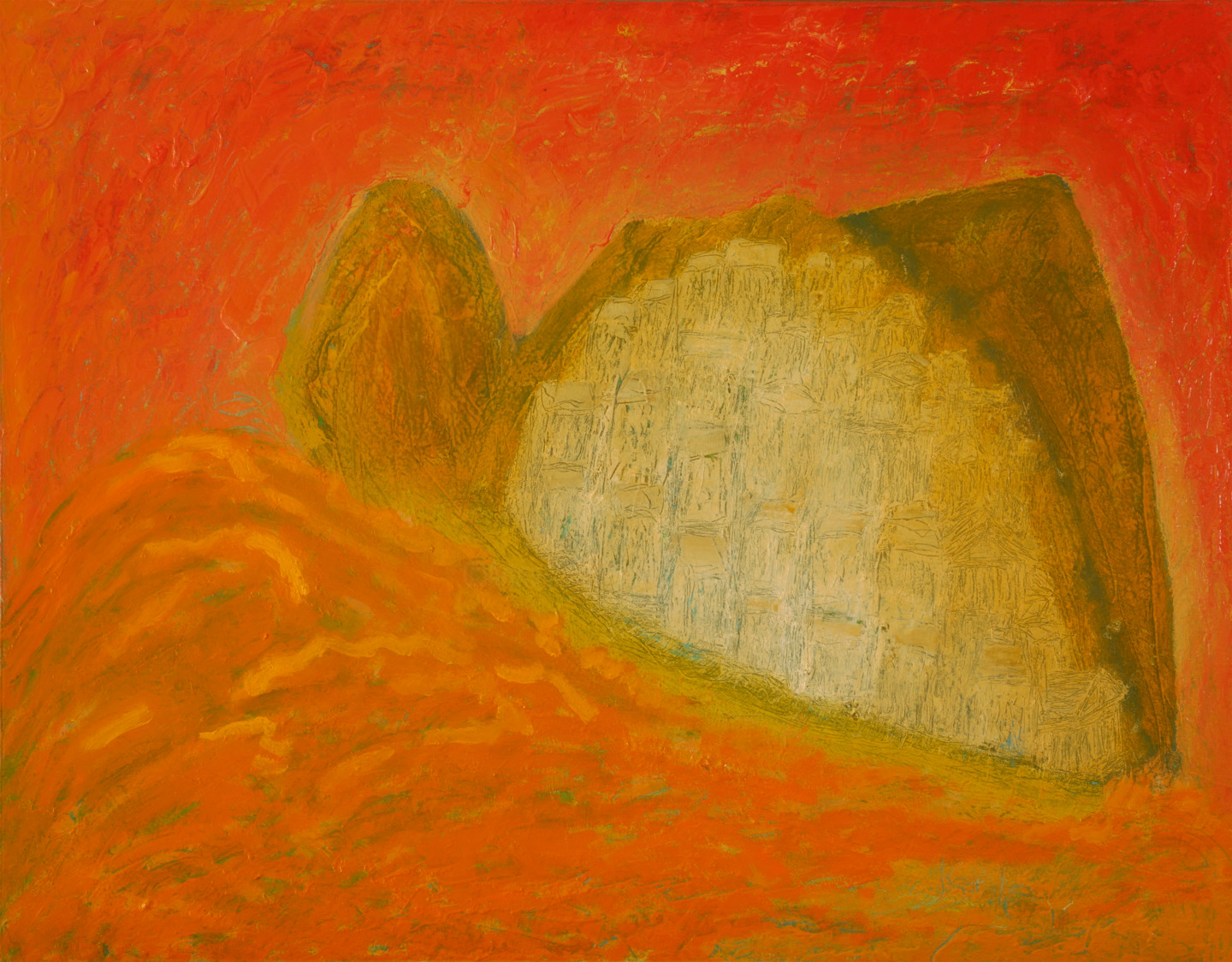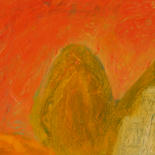Charles Riley Art
The Critique of Paradise (2020)
22x28 in ~ Painting, Oil
Buy the original: $2,499.00 + Shipping Contact Make an offer!
This painting was a reflection on a poem, Crude Foyer, by Wallace Stevens. In this poem, Sevens describes thought as false happiness and humanity’s bleak crown. He says that the landscape of the mind is a landscape only of the eye; and that there is no metaphor or critique of our experience that can truly penetrate our reality for the happiness we restlessly search for.
The last line of the poem directs the reader to a possible solution when he writes “At last, there, when it turns out to be here.” The poet leaves the reader to find the “here” that we often miss in relations to people and situations we would rather paint to conform to our picture of the world. Also, the “here” means we don’t have to look at the human condition as some kind of punishment, but a motivation to help one another and complement our relations rather than distance ourselves with our own selective view of the world as the work of a cruel comedian.
I thought this poem was appropriate for our time of turmoil. Certain stereotypes are reinforced in sensational news stories that often portray minorities as the criminals. There are many examples of content that skews perceptions, but I thought the most important effect on our consciousness is not the content but the changes in media presentation itself. I believe social media is affecting us in ways that are just becoming apparent in increasingly dysfunctional societies.
Social media trains us to jump from sensational attraction to sensational attraction. It rewards every click of the button; all the time learning about and taking advantage of the individual’s most primal instincts. This trained behavior can lead to thoughtless and disconnected behavior if not balanced by older media and personal, open minded interactions with people and situations. This behavior modification via the media is also used by totalitarian states to brainwash humans to maintain power and disguise abuse as something beneficial.
In my Critique of Paradise, the island community’s population is not visible, but the evidence of a population is in sketchy skewed buildings that crowd the limited space. The island appears to be skewed as well with a backdrop of a mountain that appears to be flat and threatens the perception of reality within relation to the buildings.
The broken red sky threatens with the overheated passions of nature, perhaps the artist’s/viewer’s. The sea is threatening as well, so like the crude foyer of thought, the island is a closed space of our thinking. That is if we try to conform it to our way of thinking without appreciating it for its unique self.
Crude Foyer by Wallace Stevens
Thought is false happiness; the idea
That merely by thinking one can,
Or may, penetrate, not may,
But can, that one is sure to be able--
That there lies at the end of thought
A foyer of the spirit in a landscape
Of the mind, in which we sit
And wear humanity's bleak crown;
In which we read the critique of paradise
And say it is the work
Of a comedian, this critique;
In which we sit and breathe
An innocence of an absolute,
False happiness, since we know that we use
Only the eye as faculty, that the mind
Is the eye, and that this landscape of the mind
Is a landscape only of the eye; and that
We are ignorant men incapable
Of the least, minor, vital metaphor, content,
At last, there, when it turns out to be here.
Added
Available as prints from $36.55
Reproductions, Canvas prints, Metal Print
Available as digital files from $32



